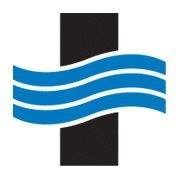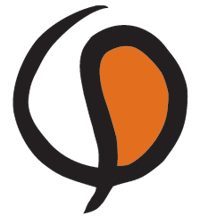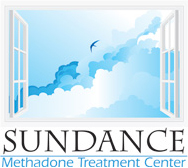Bobby Buonauro Clinic
Drug Rehab Center in Evanston, Illinois
Bobby Buonauro Clinic offers comprehensive and personalized treatment plans for alcohol and substance use disorders, opioid addiction, and trauma therapy with evidence-based services, 24-hour medical detoxification, and outpatient treatment program, all accredited and licensed by the state of Illinois.
About Bobby Buonauro Clinic in Illinois
Bobby Buonauro Clinic is an alcoholism, substance abuse, and opioid addiction treatment facility located in Evanston, Illinois. This clinic offers outpatient and detox levels of care to individuals suffering from alcoholism, substance abuse, and opioid addiction. Bobby Buonauro Clinic is accredited by CARF (Commission on Accreditation of Rehabilitation Facilities), SAMHSA (Substance Abuse and Mental Health Services Administration), and holds a State License. They accept private health insurance, ensuring accessibility and affordability for those seeking treatment and recovery.
At Bobby Buonauro Clinic, individuals struggling with addiction and substance abuse can find a range of services tailored to their needs. The clinic provides comprehensive outpatient treatment programs, offering therapy, counseling, and support to individuals seeking recovery. They specialize in addressing alcoholism, substance abuse, and opioid addiction, providing evidence-based treatments and therapies to promote long-term sobriety. Additionally, Bobby Buonauro Clinic offers detoxification services to help individuals safely and comfortably withdraw from substances under the care of medical professionals. Whether through counseling sessions, group therapy, or medication-assisted treatment, this facility is dedicated to supporting individuals on their journey to recovery.
Genders
Ages
Modality
Additional
Accreditations
State License
SAMHSA

CARF
The Commission on Accreditation of Rehabilitation Facilities (CARF) is a non-profit organization that specifically accredits rehab organizations. Founded in 1966, CARF's, mission is to help service providers like rehab facilities maintain high standards of care.
Conditions and Issues Treated
It’s not easy getting sober on one’s own, or even going to rehab and escaping the grasp of addiction by oneself. Substance abuse treatment gives addicts a place to stay sober while learning what it takes to quit for good. They will learn from others about what works and what doesn’t work with remaining drug-free.
Treatment centers such as Bobby Buonauro Clinic focus on the needs of individual addicts to heal them. There is a combination of physical and mental therapies that treat the root cause of the addiction, whether it be family problems, stress, or past traumatic events.
The final benefit of substance abuse treatment is introducing new people who can help in your recovery after you leave Bobby Buonauro Clinic. Through group therapy sessions with other addicts and attending support meetings once a day, a person will learn how to interact with others and cope with cravings. This is a chance for you to rebuild your social circle healthily after you leave treatment.
Opioid addiction starts when a person becomes addicted to legal or illegal opioids. The addiction can happen quickly, in just a matter of days. Opioid withdrawal can be extremely uncomfortable and lead the user to continue to use even if they want to quit. Stopping using an opioid requires medical observation. Sometimes inpatient treatment with a medically supervised detox is necessary for managing the withdrawal process while learning lasting tools for maintaining recovery. Medications may be used in some cases of opioid addiction.
Opioid addiction is one of Illinois‘s most prominent forms of addiction. It’s treated by detoxifying the body so that the chemicals from the medications no longer impact them and by therapies to correct behavior and target the root of the problem.
Levels of Care Offered
This center offers a variety of custom treatment tailored to individual recovery. Currently available are Detox, Outpatient, with additional therapies available as listed below.
Detox is the first step of rehab. It involves giving a person time to get the toxins out of their body. During detox, the patient gets ill and they will often start using again to get rid of these unpleasant feelings. That’s why it’s so important to have a Evanston medical professional at Bobby Buonauro Clinic present. A Illinois medical professional will make sure patients don’t start using during detox. They will also provide medication to ease their symptoms and coach them through on a mental level.
Outpatient treatment is considered the lower intensity level of addiction treatment. It’s ideal for early phase addiction or lower intensity addictions. It may include weekly sessions instead of daily. It may include weekly sessions instead of daily. Peer group support, 12-step programs, and individual counseling may still be involved but at a lesser frequency than an intensive outpatient program. It is a good choice for someone who doesn’t need to go through a medically supervised detox and who has a supportive home environment. It requires motivation and dedication to commit to the program without constant monitoring.
Therapies & Programs
Individual therapy involves one-on-one sessions between the patient and therapist. It provides patients with a safe environment to openly discuss personal and sensitive issues with the therapist. They find the therapist as someone they can trust. Individual therapy aims to identify the core issues that would have led the patient to substance abuse and address them effectively. The therapist can develop patient-specific customized solutions through individual therapy, which aids speedier recovery.
Couples therapy works with clients and significant others in a professional capacity to improve relationship dynamics. This can be helpful for addicts who are trying to marry the idea of recovery into their work, family, social lives – any aspect that has to do with relationships.
Through counseling sessions, addicts will have an opportunity to talk about their addiction with professional partners. These partners can offer feedback and advice on how to get sober while keeping healthy relationships intact. A good couples therapist will help addicts understand their part in an unhealthy relationship dynamic or find ways to deal with anger or resentment from significant others outside of the home.
Family therapy is a group problem-solving that aims to improve communication and relationships between the addict, their family, and sometimes friends. The main goal of family therapy for drug addiction is to create an environment where communication can occur without judgment, hostility, or blame. The therapist is with the family as they learn to communicate differently, especially with the addict when s/he is using. The family can learn to reduce their enabling behavior or rally together and support each other during tough times.
An addict’s family can play a vital part in helping them to avoid relapse because they can spot the warning signs and help them get back on track before it becomes too much of a problem. Family therapy is one of the most effective ways to help addicts stay on the path to long-term sobriety. When a drug addict decides that they want to try and get sober, it takes the support of every person they love to succeed. It can be incredibly difficult for loved ones to watch an addict go through the pain and suffering of withdrawal, but by being there with them and supporting them, they can help to make sure that the addiction never returns.
Groups typically involve meetings with other recovering addicts who can relate to one another’s experiences. They might meet in person or online and typically focus on the process of staying sober rather than overcoming a specific addiction.
In these groups managed by Bobby Buonauro Clinic, addicts can build a sense of community and develop strong emotional connections with others who understand what they are going through. These beneficial relationships can help addicts overcome their cravings and prevent relapse at any point during the recovery process.
In general, trauma therapy is a clinical process that helps individuals deal with mental stress often caused by traumatic events. The therapist helps the person identify, understand, and work through the problem. This is done with the help of talking about it in group or one-on-one counseling sessions. Therapists use relaxation, role-playing, art, and music to help the person open up about what is bothering them.
There are many different types of trauma therapists, such as psychiatric nurses and counselors. Not everyone is a good candidate for this type of therapy; it is generally reserved for people who have recently experienced a traumatic event and struggle to get over it. It is often done for children, teenage victims of sexual assault, and war veterans.
Payment Options Accepted
For specific insurance or payment methods please contact us.
Is your insurance accepted?
Ask an expert, call (888) 674-0062
Additional Details
Specifics, location, and helpful extra information.
Evanston, Illinois 60202 Phone Number(847) 869-1808 Meta DetailsUpdated November 25, 2023
Staff Verified
Bobby Buonauro Clinic Patient Reviews
There are no reviews yet. Be the first one to write one.
Evanston, Illinois Addiction Information
In 2016, more than 2,350 Illinoisans died from drug overdoses. More than 5,500 deaths annually occur in Illinois due to the abuse of alcohol and other drugs. 7.17% of Illinois residents reported using illicit drugs in the past month (2018). Substance abuse costs the state approximately $3.5 billion every year.
Evanston, IL is a community that is struggling with addiction and abuse problems. 54% of high school students in Evanston have tried alcohol. There were over 2,000 admissions to drug and alcohol treatment facilities annually. The number of deaths from drug overdoses in the area has quadrupled since 1998. Outpatient treatment typically lasts for 12 weeks. This type of treatment is best for those with a mild to moderate addiction.
Treatment in Nearby Cities
- Urbana, IL (135.6 mi.)
- Buffalo Grove, IL (17.2 mi.)
- Harrisburg, IL (300.3 mi.)
- Maryville, IL (258.1 mi.)
- Lasalle, IL (84.0 mi.)
Centers near Bobby Buonauro Clinic
The facility name, logo and brand are the property and registered trademarks of Bobby Buonauro Clinic, and are being used for identification and informational purposes only. Use of these names, logos and brands shall not imply endorsement. RehabNow.org is not affiliated with or sponsored by Bobby Buonauro Clinic.










